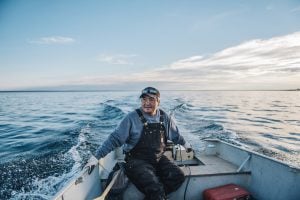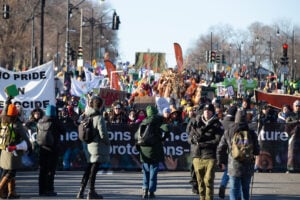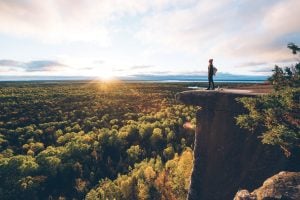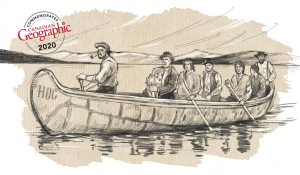
Environment
Inside the fight to protect the Arctic’s “Water Heart”
How the Sahtuto’ine Dene of Déline created the Tsá Tué Biosphere Reserve, the world’s first such UNESCO site managed by an Indigenous community
- 1693 words
- 7 minutes
Travel
Our Bucket Listed blogger on the importance of Indigenous tourism opportunities

“When people say: ‘tell us about the First Nations,’ it’s like arriving in Europe and saying: ‘tell us about the white man.’ And if people want Indian culture, they should visit Mumbai.”
I was getting a schooling in Indigenous culture from the late Tyrone Tootoosis, then the curator of Saskatoon’s Wanuskewin Heritage Park. And wow, I needed it. The long and complex history, relationships, culture and political realities of Canada’s Indigenous Peoples can appear utterly bewildering. More dollops of confusion emerge from systemic racism, cultural stereotypes, outdated history books and the scourge of misrepresentation and misinformation.
As a white South African who grew up under Apartheid, my immigration to Canada was accompanied by bafflement: Nelson Mandela was released from prison and Canada still had residential schools. Are you kidding me?
“When I grew up, we didn’t have air-conditioners, just a cold wife,” Tootoosis continued. With his dry sense of humour, he was not only teaching me about Plains Cree customs and traditions, he was also rewriting my scant understanding of Indigenous Canada, including the obvious disconnect with settler culture. Indigenous relationships with land, community, nature, wildlife, money, family and tradition are jarringly different.
Several years later, I was trekking deep in the Australian Outback with two dozen middle-aged hikers from Melbourne and Sydney. The hiking company had arranged for a local Aboriginal woman to meet us one afternoon so we could learn more about her Arrernte culture.
Using effective modern analogies to make herself better understood, Deanella Mack explained why immediate family extended beyond her brothers and sisters; how deeply connected Indigenous Australians are to their land; how stories and song reveal millennia of history; and how misunderstood customs can create deep cultural chasms.
The impact this conversation had on the Australian hikers was profound. Though mostly in their 50s and 60s, I was surprised to learn it was their first honest conversation with someone who lives across that chasm. A conversation very similar to the one that I had shared with Tootoosis. A conversation that both Canada and Australia desperately need.
Further linking these two events is their tourism context. It’s difficult to imagine they would have taken place without the facilitation of a museum or tour operator. More vital than mere accommodation, destinations or activities, Indigenous tourism is an invaluable opportunity to bring cultures together, to create a safe space for conversation, humour and honesty.
Like most businesses in the sector, Indigenous tourism has been hammered during COVID. Operators are usually located in remote areas, and many have not been established long enough to survive floating on an ocean of no revenue. Consider all those lost conversations and powerful connections.
As domestic travel restrictions ease up, any support for Indigenous tourism not only provides a meaningful experience, it supports one of the few opportunities we have to discuss, debate and collaborate toward a more inclusive — and ultimately successful — Canadian future. Do your rebound summer plans include an Indigenous cultural tour, guided backcountry adventure, heritage park, wildlife excursion or culinary class? They should. Do some research and discover Indigenous-led tourism opportunities and operators located along or near your planned route.
An acclaimed storyteller, communicator and custodian of Indigenous values, Tyrone Tootoosis tragically died of cancer in 2017. For the sake of all Canadians, let’s hope his approachability, humour and desire to bridge the obvious cultural divide didn’t die with him.

Are you passionate about Canadian geography?
You can support Canadian Geographic in 3 ways:

Environment
How the Sahtuto’ine Dene of Déline created the Tsá Tué Biosphere Reserve, the world’s first such UNESCO site managed by an Indigenous community

People & Culture
Indigenous knowledge allowed ecosystems to thrive for millennia — and now it’s finally being recognized as integral in solving the world’s biodiversity crisis. What part did it play in COP15?

Travel
The new movement building flourishing tourism hubs across Canada – one sustainable example at a time

History
A look back at the early years of the 350-year-old institution that once claimed a vast portion of the globe